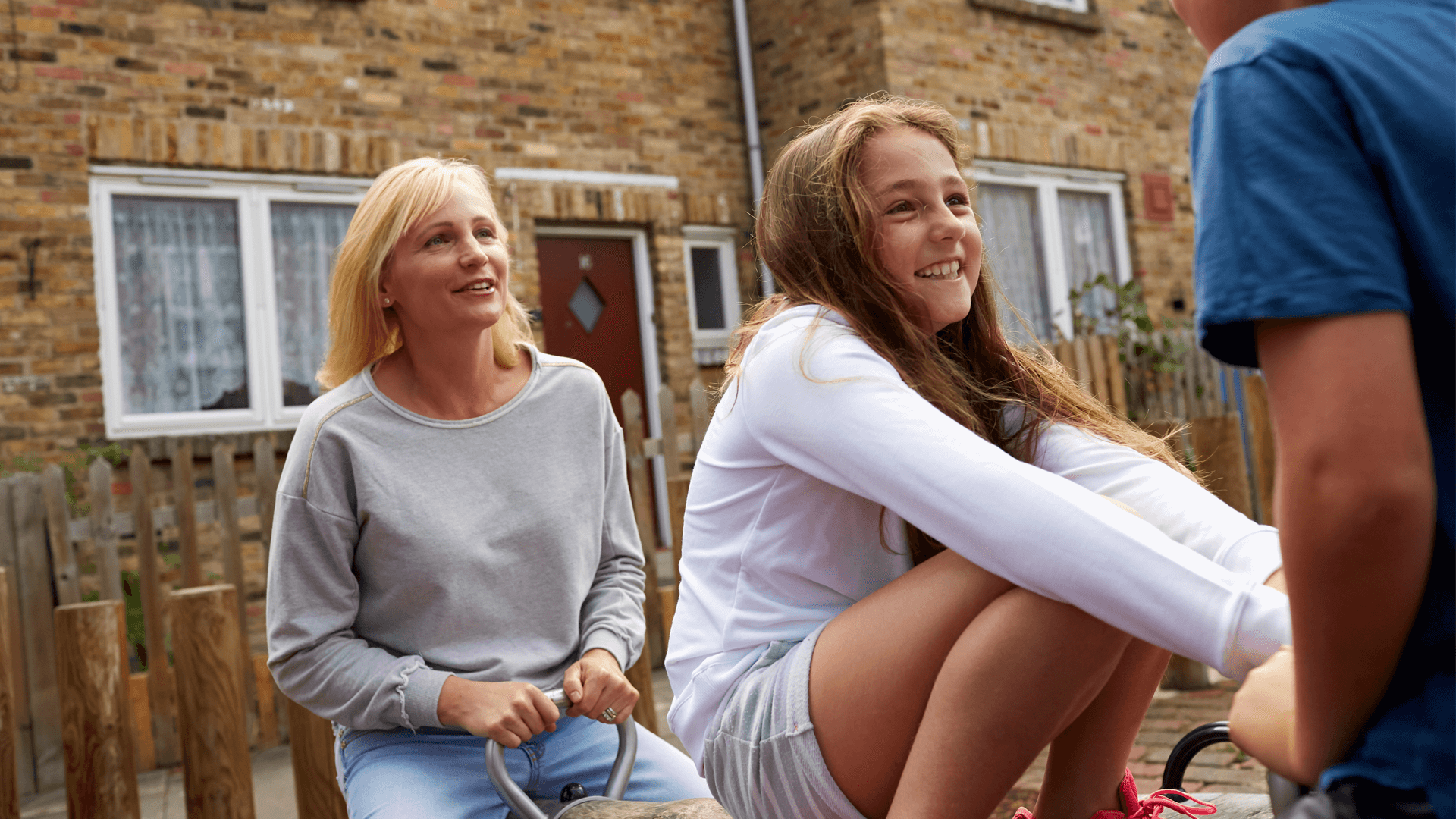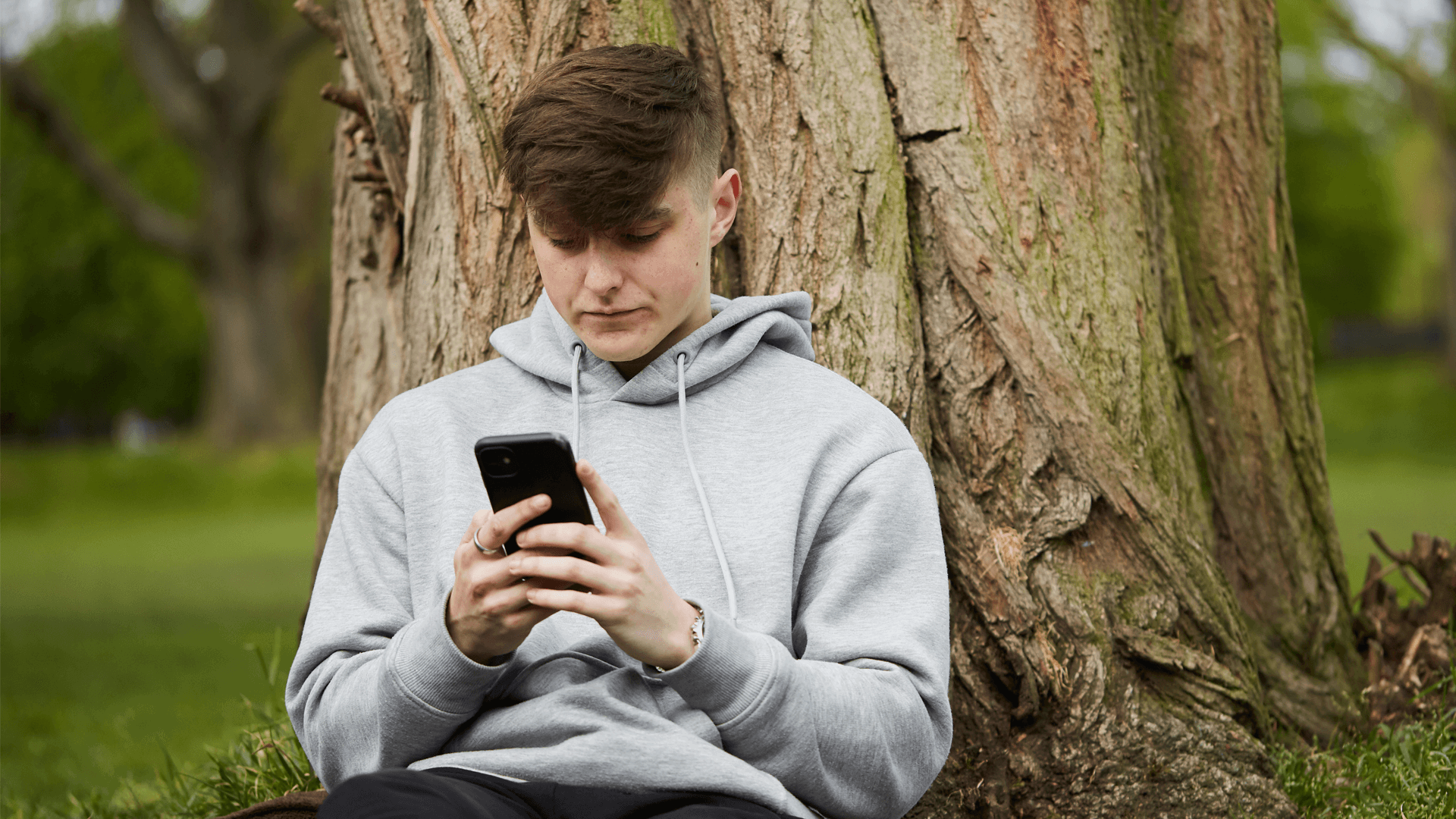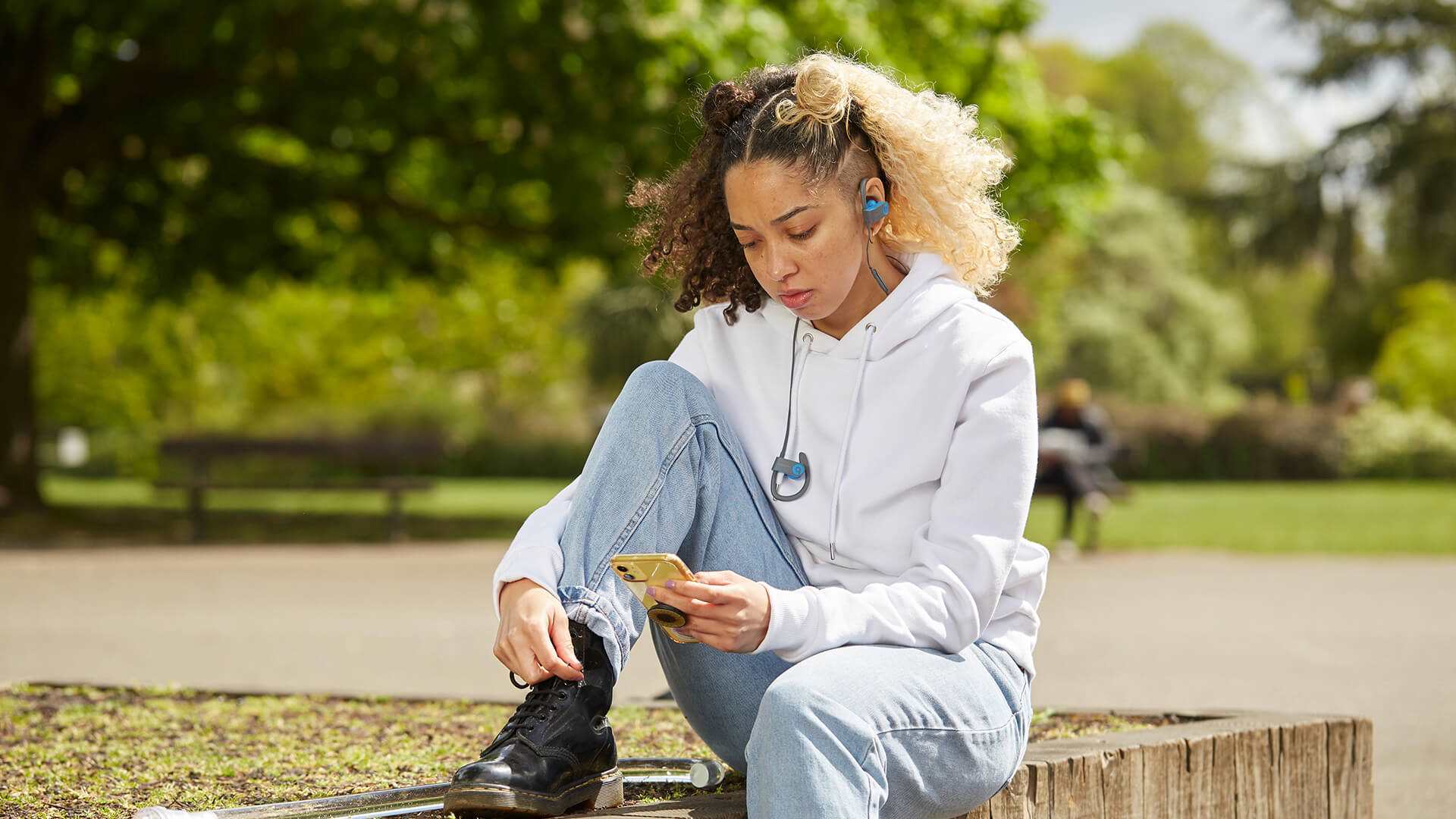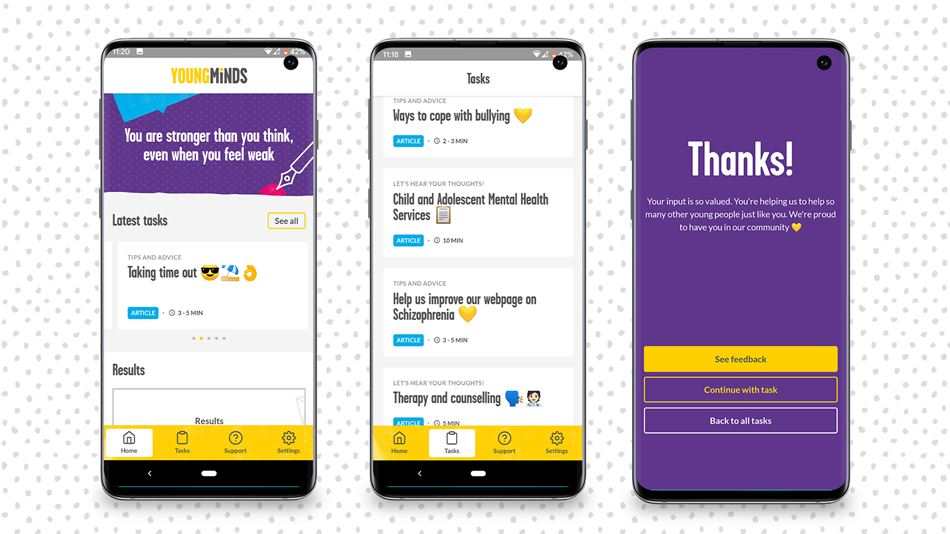What is bullying, and what are the signs?

What is bullying?
Bullying is any persistent behaviour that is intended to hurt someone. It can happen anywhere – including at school, at work, online or at home. Examples of bullying include name-calling, making threats, being violent or aggressive, spreading rumours and undermining, humiliating, excluding or pressuring someone.
While lots of young people experience bullying, it is an incredibly difficult thing to go through and can have a huge effect on your child’s mental health and wellbeing. As a parent, it can also feel very challenging and worrying.
The important thing to remember is that it is possible for your child to get through it and feel okay again, and that there are practical steps you can take to address the bullying and its consequences.
What are the signs that a young person is being bullied?
While everyone is different, a young person who is being bullied may:
- seem low or anxious
- seem less confident in themselves
- show signs of distress such as feeling upset, teary or panicky
- avoid school or refuse to go altogether
- often complain of feeling physically unwell
- have outbursts of unexplained anger at home
- seem withdrawn, isolated and wary of others
- have few friendships
- make changes in their behaviour, for example dressing very differently or suddenly doing new activities to meet peer pressure
- act in a bullying way towards others
- have unexplained physical injuries such as bruises or scratches
- do less well at school
- eat and/or sleep more or less than usual
- use things like self-harm or drugs and alcohol to cope with difficult feelings
Underneath these behaviours, a child who is being bullied may be frightened or anxious, lonely, isolated, worthless, on-edge or desperate about the situation they’re facing.
How can I help my child?
Listen to what it’s like for them and offer emotional support, reassuring them that you love them and will work together to make things better. Remember that they may feel scared or embarrassed about what’s going on, so they will need you to be calm and to listen carefully.
If your child is not ready to open up to you about what’s going on, let them know that they can also talk to teachers or friends, to other family members or to one of the helplines you can find listed at the end of this page.
Many young people will initially struggle to talk to their parents about how they’re feeling, and may appear withdrawn – and when a young person is being bullied, they may feel afraid, embarrassed or ashamed about what’s happening. If they don’t want to talk, try again another day and let them know they can talk to you whenever they are ready.
If you already know that your child is being bullied, check in with them regularly about it and listen calmly and carefully each time. Keep reassuring your child that they are loved and do not have to put up with bullying. Let them know that you will be there to support them throughout the experience.
Keep a detailed log of what happens and when, so that you have evidence of the bullying - this can be a written list, photographs or screenshots of online messages.
Encourage your child to share any evidence with you as soon as possible. It can be difficult to remember to do this when you’re juggling lots of different things, so finding a simple system like keeping notes in one place on your phone might help.
Use the time you have with your child to help build their resilience and self-esteem. For example, you might try regularly doing activities that you know they enjoy together, which can give your child a sense of achievement and belonging. This could be things like exercising or playing sport, cooking and baking, or colouring, drawing or painting. Try to notice and affirm their efforts in these activities.
Encourage them to spend time with peers who treat them well. Help them to think about who these people are, and support them to arrange times to hang out or do activities with them.
It might help your child to join a club or group at school, or at an organisation outside of school, where they can meet people with shared interests. Bear in mind that some young people might find it difficult to spend time with new people, and need space and time to think about this, especially if they regard the bullies as friends.
Support them to make time for doing the things that help them to relax and switch off from worrying. This could be things like listening to music, exercising, watching a favourite film or doing something creative.
Take action to stop the bullying. Providing emotional support is really important, but your child can only start to recover from what’s happened when the bullying has stopped and they feel safe again. You can find tips and advice to help you address the bullying below.

Young people tell us it helps to…
- remember no matter how alone bullying can make you feel, there is always someone to talk to and someone who can help.
- remember bullying is not the victim’s fault, it will not go on forever, and things can get better.
- find positive activities that you enjoy.
- have time out.
- not bottle it up and try to deal with it alone. Speak out and tell someone. Letting it out will make you feel so much better.
- keep reporting the bullying until it stops. It may not stop the first time you tell your parents or teacher and they try to stop it. If the bullying continues, tell them again.

Young people's advice for parents
- Show your child unconditional kindness and acceptance – whatever their sexuality, gender, race or ability.
- Let your child vent when they need to.
- Don’t underestimate how mean kids can be sometimes.
- Never minimise or ignore what’s happening – or use phrases like ‘sticks and stones may break your ones but words can never hurt you’.
If the bullying is happening at your child’s school
- Read through the school’s anti-bullying policy. This should set out how they need to respond and support your child. It is usually on the school’s website, but if not, ask a member of staff to send it to you.
- If your child is being bullied by peers from school but it’s happening outside of school hours or online, remember that head teachers of state schools have the legal power to make sure their pupils behave outside of school premises – and that the school should still be involved.
- Organise a meeting with your child’s teacher or form tutor as soon as possible. Agree together on the strategies you will use to support your child and make sure the bullying stops. It’s helpful to use your evidence log during the meeting if you have one. Take notes and then follow up afterwards by email to summarise what you’ve agreed, and to arrange another meeting for a few weeks’ time to discuss progress and any next steps. Having an email trail of your communication with the school can be really helpful for making sure the school takes action.
- If your child feels worried about you speaking to the school, reassure them that their teacher is there to support them and will want to make sure that the bullying stops.
- If your child is worried about going to school or doesn’t want to go to school at all because of the bullying, validate their feelings – for example by saying it’s understandable that they feel this way. Even though the situation may feel stressful, don’t shout, tell them off or physically force them to go to school – as this is likely to increase their anxiety. You can find out more about supporting your child in this situation here.
- If you are unhappy with the way a member of staff is responding to your concerns, escalate them to a more senior person – such as a more senior teacher, a deputy head, or the head teacher. If this doesn’t work, you can contact the school governors (their contact details should be on the school’s website), and lastly the Local Education Authority or the Academy Trust. If you’re finding it difficult to get the school to engage with your concerns, it might help to talk the situation through with friends, family or other parents – so you can think together about what you want to say to the school.

If the bullying is happening online
- Report it to the game or social media platform and block the perpetrator. Most games and social media platforms have an anti-bullying policy which can be found online.
- If you think your child is being bullied online by peers from their school, report it to the school as soon as you can.
- Keep reporting the bullying until it stops. It may not stop the first time you report it – so keep checking in with your child, and report it each time it happens again.
- Teach your child how to use the internet safely, rather than confiscating their technology. You can read our tips on online safety and gaming for more advice about how to do this.

If the bullying is happening outside school
- Talk to your child about how to tackle it – it may mean changing social plans to keep them safe, or making sure they always go out with a friend who treats them well.
- Make a plan for how to manage it if your child encounters the bullies, such as calling the police, calling you or another trusted adult, or quickly getting to a safe space.
- If the bullying is happening at a club or organisation, discuss the problem with those in charge.
Where can I find professional help?
A young person who is experiencing, or has experienced, bullying may struggle with anxiety, low mood or depression, or difficult feelings associated with trauma.
If you're worried about your child's mental health, there are different places where you can find help. Your GP, your child's school and considering whether counselling or therapy might help are good places to start.
You can find out more about speaking to GPs, finding a counsellor or therapist, accessing Child and Adolescent Mental Health Services (CAMHS), getting help from your child’s school and finding local services on our guide to getting help.
School support with bullying
Wherever your child is experiencing bullying, it's helpful to be open with their school about what’s going on and what support they need. Depending on their age, it may be important to make sure your child feels some control over the information that’s shared about them – for example by discussing with them who they would feel comfortable for you to speak to.
The initial focus needs to be on making sure the bullying stops, and the school must adhere to its anti-bullying policy. In terms of other support, alongside counselling schools can often provide support such as drop-in chat sessions, mentoring, peer buddying and clubs and activities. Your child’s school may also be able to refer them to local services that support young people with bullying.
If your child’s safety is at risk
If the bullying is posing a risk to your child’s safety, is a form of hate crime or ever makes you or your child feel unsafe, report your concerns to the police by calling 111 or 999.
You might also find helpful...
Where to get further support
Useful helplines and websites
-
Kidscape
Information, advice and support for parents, carers and other family members who are concerned that a child is being bullied or may be involved in bullying others.
You can also contact them via WhatsApp on 07496 682785.
- Opening times:
- 9.30am - 2.30pm, Mondays and Tuesdays
-
NSPCC
Advice and support for anyone who is worried that a child is being bullied or cyberbullied.
If you are deaf or hard of hearing and have a webcam, you can contact them via SignVideo using British Sign Language (service Monday to Friday, from 9am to 6pm).
- Opening times:
- 8am - 10pm, Monday - Friday; 9am - 6pm at weekends
-
Childline
If you’re under 19 you can confidentially call, chat online or email about any problem big or small.
Sign up for a free Childline locker (real name or email address not needed) to use their free 1-2-1 counsellor chat and email support service.
Can provide a BSL interpreter if you are deaf or hearing-impaired.
Hosts online message boards where you can share your experiences, have fun and get support from other young people in similar situations.
- Opening times:
- 24/7
-
The Mix
Offers support to anyone under 25 about anything that’s troubling them.
Email support available via their online contact form.
Free 1-2-1 webchat service available.
Free short-term counselling service available.
- Opening times:
- 3pm - 12am, seven days a week





